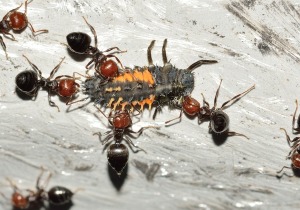When you are in the social science funding is always an issue. Let me correct this: When you do research funding is always an issue (who doesn’t want to have more money, regardless of your discipline or industry). But less funding is given to the social science as governments consider these fields to be less important (Here a couple of news story on this issue: House spending panel does its best to hide large cut to NSF social and geosciences research , Out of Favor With House GOP , Japan’s Education Ministry Says to Axe Social Science and Humanities). At least we don’t have it as hard as the humanities.
Related to how much funding we get, is how exciting our results are to others. When a new planet is discovered, people listen to that, but when researcher show how old employees can still be employed, fewer people pay attention. This was the backdrop against which a colleague and I discussed “exciting research”. So what finding gets two social scientists excited ? Funnily, the news that ants attend to social information once they are finished with their task. This piece of news is interesting for us for two reasons: First, ants can discern between social information and task relevant information, and secondly ants do what humans should be doing but are very bad in it: Focus on your task. The fact that we are working on a project on task switching may also have contributed to our excitement.

What I find exciting about ants is that they work perfectly together. I study teams, and ants are – sort of – the pinnacle of teams. Spurred by the research on ants I mention above, I checked out what else there is to know about these little creatures:
- Free riders or efficient use of resources: Ants collaborate without fighting, but some seem to do nothing. Maybe those slackers do nothing because there is nothing to do. So instead of wasting their energy on mindless tasks they rest.That would be perfect use of resources.
- Ants and career moves: This article explains that ants have different occupations (nurse, cleaner, and farmer). Over their life span ants change occupation, most ants go from being a nurse, to clean, to looking for food. However, there are always exception to a rule, with, for example, some nurses being very old. Ants also prefer to interact with those who have the same job.
- Ants and chemical war : Ants also fight against other ants. They don’t have guns, but use chemical weapons to defend themselves or other strategies we are familiar with.
- Ants and caring for the sick : In search to understand the absence of disease outbreaks in ant colonies, researchers infected ants with a fungus (Not sure what the Institutional Review Board thought about purposefully making your research subject sick). What happened is that other ants came to clean the infected ant and so avoided that the disease could spread in the infected ant and through the colony. In case this didn’t work, quarantine was the next step. Young ones had to be kicked out, not accepting their fate, whereas older (more wiser) ants voluntary left to potential die outside the colony. Seems harsh, but saves the team.
- Ants and ‘antian’ unrest : Instead of foraging and taking care of necessary activities, the American slavemaker ant steals larvae from other ant species and raises them as slaves. In this role, these ants have to care for the kids of their masters and forage for food, giving them ample opportunities for ‘antian’ unrest in the form of small acts of sabbotage.
- Ant and information search : There are similarities of how ants go about finding food and algorithms of the transmission control protocol regulating data transfer on the Internet. In the article they also explain the ants road system, forgoing efficiency for resilience. Something for network researcher and computational (social) scientists.
- Ants and group level personality : The study presented here shows that different ant colonies have different group level personality: Some colonies are more aggressive, going further away from their nest to find food, whereas others are shy and prefer to stay near home. Ants from a northern area in Canada are more aggressive, which the researcher link to the cold climate and short summer. The short time these ants have to find food means they have to be aggressive to collect enough resources.
But be warned, applying these results to humans may be a big leap. More research needs to be done…


